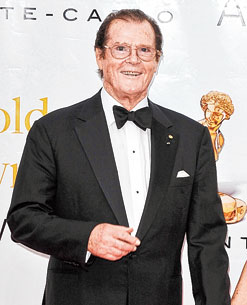
A prostate cancer awareness camp was held on June 21 in Salt Lake City Medical Centre DD Ten, in DD Block.
Conducted by the CA Block-based GM Cancer Research Trust, the camp also offered free prostate specific antigen (PSA) tests.
The audience was given a presentation by medical oncologist Dr G.S. Bhattacharyya, who is a trustee of GM Cancer Research Trust and also sits at the hospital. “Prostate cancer is globally the second-most common cancer among men after lung cancer and it is expected to become the most common cancer by 2017,” said Dr Bhattacharyya, blaming low awareness for the same.
Indeed, when he asked the room of 12 elderly men how many had got their prostates checked before, only two raised their hands. “I’ve seen my friends getting prostate cancer and I myself have an enlarged prostate so I want to be careful. I’m looking forward to some dos and don’ts today,” said Sudip Kumar Dhar, an audience member who had come from Karunamoyee G Block.
Dr Bhattacharyya explained that the prostate is a part of the male reproductive system that facilitates sperm flow. It is about the size of a walnut and is situated under the bladder. But early detection of prostrate cancer is possible and he asked the audience to pay attention to warning signs.
Who is at risk?
The prostate gland is controlled by male hormones so any male, whose hormones function normally, has a chance of getting prostate cancer. But some are more likely to get it than others-
lAge- The risk increases with age. A man above the age of 50 has a one in six chance of getting prostate cancer and the older one gets the greater is his chance of getting it.
lFamily history- If a man’s father or uncle had prostate cancer, he has a greater chance of getting it. If his mother had breast cancer before the age of 40 and ovarian cancer before the age of 60, it puts him at higher risk too.
lRace- Non-caucasians have a greater chance of getting prostate cancer.
Symptoms
Frequent urination at night (more than three times a night)
Slow urine flow
Pain during urination
Blood with urine and semen
Loss of libido
Pain in back or thighs
Nothing- Sometimes the cancer may not betray any symptoms at all. This is why the PSA blood test must be done periodically (see below).

Academy Award winner Robert De Niro was diagnosed with prostate cancer at the age of 60. Fortunately “the condition was detected at an early stage because of regular checkups, a result of his proactive personal healthcare programme,” his publicist said in a statement. Known for macho roles in films like Taxi Driver and Raging Bull, the actor valiantly fought off the disease. Few details were released about the star’s treatment, but he went on to make a full recovery.
(Getty Images)
Prevention and cure
Broccoli, cauliflower (especially the small ones), watermelons and batabi lebu are effective in preventing prostate cancer. Tomatoes are good too and it is advisable to have two tomatoes a day.
After the age of 55, one should cut down on saturated fats, the common source of which are red meat,
cheese and dairy products. From the point of view of prostate cancer, sunflower oil is avoidable.
Rice barn oil is the safest cooking medium.
The most important weapon against the cancer is the PSA test, that must be done once a year to detect abnormalities.
Stigma
While prostate cancer is curable in the early stage, Dr Bhattacharyya says four out of 10 suspected patients do not even return to do the biopsy because of the stigma associated with the illness.
“Since the treatment of the cancer can reduce libido, patients feel they will be ‘less of a man’ if they undergo it. Many refuse to even discuss it with their wives proclaiming that they would rather die with the cancer than get it treated,” he says.
Breast cancer suffered from a similar low level of awareness once, says Dr Bhattacharyya. “But former American First Ladies Nancy Reagan and Betty Ford got breast cancer, survived it and then starting talking about it to raise awareness. Similarly there are many influential people who have prostate cancer but they are too embarrassed to come out and talk about it in the open,” said Dr Bhattacharyya.










